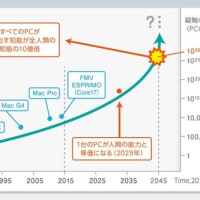タイトルからして物騒な感じですが、内容は大したものではありません。まずヘイトスピーチについて述べましょう。例によって英文のウィキを見ると各国に混じって日本の項目があって、以下のように長い記載があります。
Japanese law covers threats and slander, but it "does not apply to hate speech against general groups of people".[39] Japan became a member of the United Nations International Convention on the Elimination of All Forms of Racial Discrimination in 1995. Article 4 of the convention sets forth provisions calling for the criminalization of hate speech. But the Japanese government has suspended the provisions, saying actions to spread or promote the idea of racial discrimination have not been taken in Japan to such an extent that legal action is necessary. The Foreign Ministry says that this assessment remains unchanged.[40]
In May 2013, the United Nations Committee on Economic, Social and Cultural Rights (CESCR) warned the Japanese government that it needs to take measures to curb hate speech against so-called "comfort women", or Asian women forced into sexual slavery by the Japanese military during World War II. The committee's recommendation called for the Japanese government to better educate Japanese society on the plight of women who were forced into sexual slavery to prevent stigmatization, and to take necessary measures to repair the lasting effects of exploitation, including addressing their right to compensation.[41][42]
In 2013, following demonstrations, parades, and comments posted on the Internet/threatening violence against foreign residents of Japan, especially Koreans, there are concerns that hate speech is a growing problem in Japan.[43][44][45] Prime Minister Shinzo Abe and Justice Minister Sadakazu Tanigaki have expressed concerns about the raise in hate speech, saying that it "goes completely against the nation's dignity", but so far have stopped short of proposing any legal action against protesters.[40]
On 22 September 2013 around 2,000 people participated in the "March on Tokyo for Freedom" campaigning against recent hate speech marches. Participants called on the Japanese government to "sincerely adhere" to the International Convention on the Elimination of All Forms of Racial Discrimination. Sexual minorities and the disabled also participated in the march.[46]
On 25 September 2013 a new organization, "An international network overcoming hate speech and racism" (Norikoenet), that is opposed to hate speech against ethnic Koreans and other minorities in Japan was launched.[47]
On 7 October 2013, in a rare ruling on racial discrimination against ethnic Koreans, a Japanese court ordered an anti-Korean group, Zaitokukai, to stop "hate speech" protests against a Korean school in Kyoto and pay the school 12.26 million yen ($126,400 U.S.) in compensation for protests that took place in 2009 and 2010.[48][49]
A United Nations panel urged Japan to ban hate speech.[50][51][52]
In May 2013, the United Nations Committee on Economic, Social and Cultural Rights (CESCR) warned the Japanese government that it needs to take measures to curb hate speech against so-called "comfort women", or Asian women forced into sexual slavery by the Japanese military during World War II. The committee's recommendation called for the Japanese government to better educate Japanese society on the plight of women who were forced into sexual slavery to prevent stigmatization, and to take necessary measures to repair the lasting effects of exploitation, including addressing their right to compensation.[41][42]
In 2013, following demonstrations, parades, and comments posted on the Internet/threatening violence against foreign residents of Japan, especially Koreans, there are concerns that hate speech is a growing problem in Japan.[43][44][45] Prime Minister Shinzo Abe and Justice Minister Sadakazu Tanigaki have expressed concerns about the raise in hate speech, saying that it "goes completely against the nation's dignity", but so far have stopped short of proposing any legal action against protesters.[40]
On 22 September 2013 around 2,000 people participated in the "March on Tokyo for Freedom" campaigning against recent hate speech marches. Participants called on the Japanese government to "sincerely adhere" to the International Convention on the Elimination of All Forms of Racial Discrimination. Sexual minorities and the disabled also participated in the march.[46]
On 25 September 2013 a new organization, "An international network overcoming hate speech and racism" (Norikoenet), that is opposed to hate speech against ethnic Koreans and other minorities in Japan was launched.[47]
On 7 October 2013, in a rare ruling on racial discrimination against ethnic Koreans, a Japanese court ordered an anti-Korean group, Zaitokukai, to stop "hate speech" protests against a Korean school in Kyoto and pay the school 12.26 million yen ($126,400 U.S.) in compensation for protests that took place in 2009 and 2010.[48][49]
A United Nations panel urged Japan to ban hate speech.[50][51][52]
簡単に言っちゃうと、我が国はU.N.に叱られっぱなしのダメな国で、慰安婦問題に金銭的な補償など法的な対応をすべきなのに安倍首相の対応は口先だけで、2013年を中心に政府への抗議行動が巻き起こったといったことを印象付けたいのでしょう。
その当否はひとまず置いて、別の国を見てみようと思いましたが、コリアも中国も項目自体がありません。中国語版とハングル版についてはよくは理解できませんが、分量が少ないので辞書的な内容だろうと思います。
じゃあ、人権と言えばフランスかなと思ってフランスの項目を見てみたら、次のような法制度を簡単に紹介しただけの記述でした。
Main article: Hate speech laws in France
France prohibits by its penal code and by its press laws public and private communication which is defamatory or insulting, or which incites discrimination, hatred, or violence against a person or a group of persons on account of place of origin, ethnicity or lack thereof, nationality, race, specific religion, sex, sexual orientation, or handicap. The law prohibits declarations that justify or deny crimes against humanity, for example, the Holocaust (Gayssot Act).[30]
France prohibits by its penal code and by its press laws public and private communication which is defamatory or insulting, or which incites discrimination, hatred, or violence against a person or a group of persons on account of place of origin, ethnicity or lack thereof, nationality, race, specific religion, sex, sexual orientation, or handicap. The law prohibits declarations that justify or deny crimes against humanity, for example, the Holocaust (Gayssot Act).[30]
念のためにフランス語版のDiscours de haineを見ましたが、日本についての記述はなく、フランス自体については次のようなもので、英語版よりは若干詳しい程度のものに過ぎません。
La France interdit la publication de propos diffamatoires ou insultants, qui inciteraient à la discrimination, à la haine, ou à la violence contre une personne ou un groupe de personnes en raison de leur lieu d’origine, de leur ethnie ou absence d’ethnie, de la nationalité, de la race ou d’une religion spécifique, et ce depuis 1881. La loi interdit l’incitation à la discrimination, la haine, la violence contre les personnes en raison de leur sexe, orientation sexuelle, ou leur handicap. La loi interdit les déclarations qui nient, justifient ou relativisent les crimes contre l’humanité (comme la négation de la Shoah).
En 2007, le tribunal correctionnel de Lyon a condamné Bruno Gollnisch à trois mois de prison avec sursis et à une amende de 55 000 € pour avoir contesté l’existence de crimes contre l’humanité dans une remarque sur la Shoah. Cette décision est confirmée en appel le 28 février 2008, mais le 23 juin 2009 la Cour de cassation annule la condamnation et blanchit Bruno Gollnisch, arguant du fait qu'il n'avait pas contesté l'existence des crimes contre l'humanité, mais suggéré que les « spécialistes » (c'est-à-dire les historiens) aient légalement le droit de débattre au sujet de ces crimes, sans que la loi n'interdise par avance, dans leurs débats, l'exploration de certaines thèses ou possibilités.
Article détaillé : Affaire des propos de Bruno Gollnisch d'octobre 2004.
En 2008, Brigitte Bardot est condamnée pour la cinquième fois pour « incitation à la haine raciale ». Le MRAP avait porté plainte parce qu’elle avait dit, dans une lettre au gouvernement au sujet de l’Aïd el-Kebir musulman : « Il y en a marre d’être mené par le bout du nez par toute cette population (…) qui détruit notre pays… »18.
Après avoir été condamné pour propos homophobes par le tribunal correctionnel de Lille et la Cour d'appel de Roubaix, le député Christian Vanneste est relaxé par la Cour de cassation en novembre 2008.
En 2007, le tribunal correctionnel de Lyon a condamné Bruno Gollnisch à trois mois de prison avec sursis et à une amende de 55 000 € pour avoir contesté l’existence de crimes contre l’humanité dans une remarque sur la Shoah. Cette décision est confirmée en appel le 28 février 2008, mais le 23 juin 2009 la Cour de cassation annule la condamnation et blanchit Bruno Gollnisch, arguant du fait qu'il n'avait pas contesté l'existence des crimes contre l'humanité, mais suggéré que les « spécialistes » (c'est-à-dire les historiens) aient légalement le droit de débattre au sujet de ces crimes, sans que la loi n'interdise par avance, dans leurs débats, l'exploration de certaines thèses ou possibilités.
Article détaillé : Affaire des propos de Bruno Gollnisch d'octobre 2004.
En 2008, Brigitte Bardot est condamnée pour la cinquième fois pour « incitation à la haine raciale ». Le MRAP avait porté plainte parce qu’elle avait dit, dans une lettre au gouvernement au sujet de l’Aïd el-Kebir musulman : « Il y en a marre d’être mené par le bout du nez par toute cette population (…) qui détruit notre pays… »18.
Après avoir été condamné pour propos homophobes par le tribunal correctionnel de Lille et la Cour d'appel de Roubaix, le député Christian Vanneste est relaxé par la Cour de cassation en novembre 2008.
まあ。英語版のウィキ自体日本以外ではアメリカが詳しいくらいで、それも淡々としたものですから、日本の項目自体がいわゆる戦争責任を巡る日本国へのヘイトスピーチじゃないの?っていう皮肉な感想を抱かざるを得ません。
それを書いた人が誰かはもちろんわかりませんが、英語はできるけれど、中国語もハングルもフランス語もできないし、ましてやこれらの言語を使う人々に熱く語りかける情熱も関心もないのでしょう。
日本語版と併せ読むと、日本って国は、コリアンの過去と現在の問題を中心にヘイトスピーチでなんだかやたら盛り上がってる変わった国だと思えてきます。
しかし、まあそれはそれとして、口熱臭く慰安婦問題や中韓の態度をネットやリアルで非難している人たちは何をしているのでしょうか。左翼は時代遅れの消滅自治体のようなものだと思いますが、右翼は語学力もなく、教養のない国内のみで騒ぐだけの連中だと言われて何か反論はあるでしょうか?
ぼくはネットでのなんとかの一つ覚えの議論なんかより、ユーモアもなく下品なだけのシャルリー・エブドを許すフランスという国に驚いて、かつて記事を書きましたが、あれこそがムスリムに対するヘイトスピーチだと思いますし、事の是非はともかくテロリストの心情に深い同情を寄せるのにやぶさかではありません。
原子力産業を国の重要施策と位置づけ、シリアに積極的に空爆を行い、ムスリムに対して冷淡と無慈悲の中間くらいの態度のフランスという国は好きではありませんが、他方、日本だってもう70年も経ったんだから、ちょっとは彼らの国際社会での尊大な振る舞い方を見習わないとダメなんじゃないのかとは思います。
英語版のウィキは定義的に、Hate speech, outside the law, is speech that attacks a person or group on the basis of attributes such as gender, ethnic origin, religion, race, disability, or sexual orientation.と記載しますが、実際は各国の歴史的背景、特に戦後処理の問題だと思います。うまく戦勝国側に入り込み常任理事国の一角を占めたフランスや中国は戦敗国であるドイツや日本に対して有利な立場であり、上から目線でものが言えるわけです。アメリカの場合はCivil Warの戦後処理でしょうか。
被害者、社会的弱者が有利な立場、特権性を持つことは障害者問題でも同じじゃないかと思います。今回の五体不満足の著者の世渡り上手とペルソナの使い分けの巧みさはネットではかなり批判されていますが、及び腰の奥歯にものの挟まったようなものであることは明白です。彼はいかなる才能や資質を有していて、有名になり、マスコミで活躍し、国政に参加してもらおうと周りが担ぎ上げるようになったのでしょうか。
いや、それ以前に巷間伝えられるようにいかなる魅力があって女性にモテたのでしょうか。相手の女性にその動機や体験のほどをみっちり聴いてみる勇気のあるジャーナリズムは寡聞にして知りませんが、女性ならおおよその見当はつく人もいるんじゃないのかなと思いますし、ご本人もそれを承知で楽しんでおられたんじゃないかと推測します。
しかし、政治家を志すのであればたとえ先天性の四肢欠損であっても、頭部の中身がいくら明晰であっても、下半身の問題が致命的であることは変わらないことが明らかになったのは報道の自由の観点からもよかったと思っています。
さて、なぜぼくがヘイトスピーチと政治家志望を断念していないようにしか見えない人を結びつけたかを説明すべきかもしれません。それは全く論理性がなくて、かつて朝日新聞が三島由紀夫の生首写真を掲載したからです。
1970年と言えば憲法を生活に生かそうと京都府がお触れを出したり、日教組による人権教育という名の問題の詰め込み教育が華やかなりし時代でしたが、朝日新聞社は人権の何たるかを果たしてわかっていたのでしょうか。いや、今もわかっているとは到底思えないような報道を繰り返しているんじゃないかと憶測します。
なぜなら、マスコミを始めとする自らを物知りだの、賢いだの、社会の木鐸だのと思い込んでいる人たちの正体を小学生のぼくはその新聞を見た衝撃とともに直観的に理解したからです。古代ギリシャでの言い方で言えば政治的発言を弄ぶソフィストたちということになるわけですが。



















